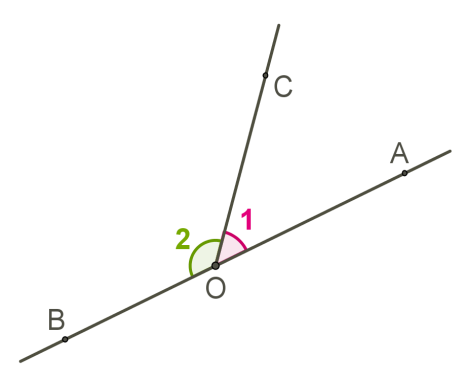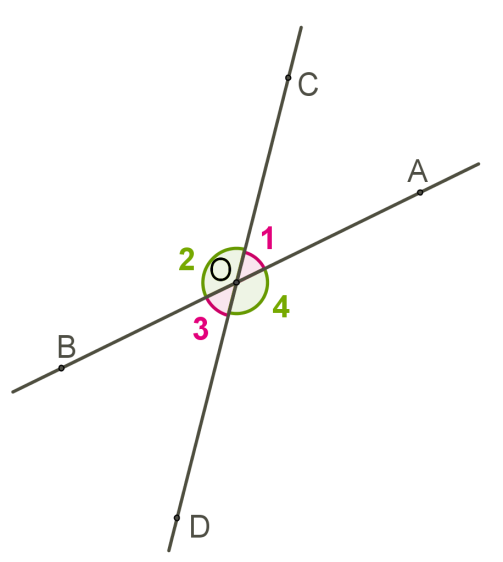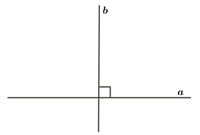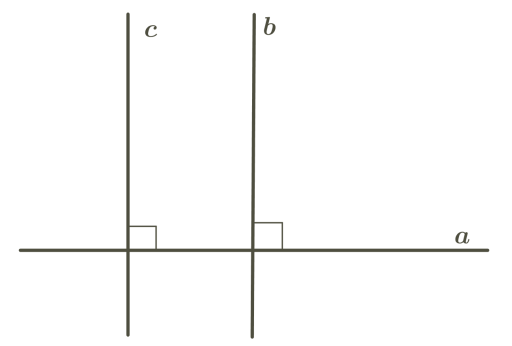
PUMPA - SMART LEARNING
எங்கள் ஆசிரியர்களுடன் 1-ஆன்-1 ஆலோசனை நேரத்தைப் பெறுங்கள். டாப்பர் ஆவதற்கு நாங்கள் பயிற்சி அளிப்போம்
Book Free DemoStraight lines:

The angle is a wide-angle, and a beam OC divides it into two parts then .
The sum of two angles on a straight line is 180°, such angles are called Supplementary angles.
When two angles are supplementary, each angle is said to be the supplement of the other.
Example:

∠AOB and ∠BOC - adjacent angles
∠AOB + ∠BOC = ∠AOC .
∠AOC and ∠COP- linear pair.
Therefore, their sum is 180° (∠AOC + ∠COP = 180°).
Combining these two results we get ∠AOB + ∠BOC + ∠COP = 180°.
Thus, the sum of all the angles formed at a point on a straight line is 180°.
Intersecting lines:

If two lines intersect, then two pairs of vertical angles are formed and .
and by the property of adjacent angles, therefore, .
It is also clear that .
Vertical angles are equal.
Perpendicular lines and angles formed by them
If one of the vertical angles of the line is equal to , then the remaining angles are also straight.
If two intersecting straight lines form four right angles, they are called perpendicular.

It has written down .
Two straight lines, perpendicular to the third, do not intersect.
